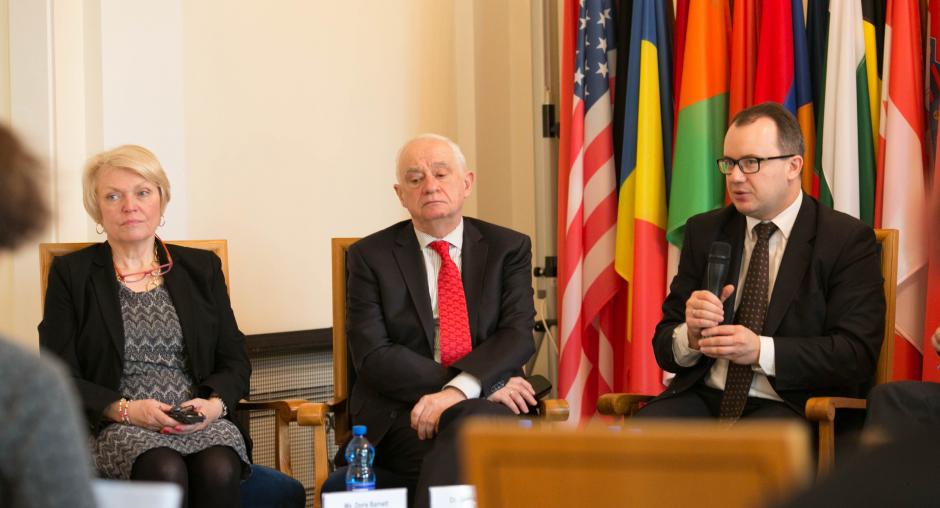Strengthening work of ombuds institutions for armed forces focus of OSCE/ODIHR event in Warsaw

Strengthening the work of ombuds institutions for the armed forces in the OSCE region was the focus of a three-day event co-organized by the OSCE Office for Democratic Institutions and Human Rights (ODIHR) in Warsaw from 20 to 22 March 2017.
The event, which started with a conference and was followed by a two-day training workshop, was organized together with the Geneva Centre for the Democratic Control of Armed Forces (DCAF), the Conflict Prevention Centre of the OSCE Secretariat and the Polish Commissioner for Human Rights.
The conference on 20 March gathered more than 50 participants, including 29 representatives of ombuds institutions mandated to oversee the armed forces, members of parliaments, security sector representatives and international experts. The subsequent workshop for senior ombuds institution officials focused on planning and conducting investigations related to the armed forces.
“OSCE participating States have recognized the importance of independent ombuds institutions for the armed forces. Their role and work are crucial to the exercise of good governance and democratic values, and ODIHR is specially tasked to assist them,” said Ewa Sapiezynska, Human Rights Officer at ODIHR.
“This initiative comes as a response to the need voiced by many ombuds institutions for regional staff training on receiving and investigating complaints related to the armed forces,” said Will McDermott from DCAF´s Ombuds Institutions for the Armed Forces Programme.
“In fact, complaints-handling and investigations are ranked as the most important functions carried out by these institutions,” he added, quoting a survey carried out by DCAF and ODIHR in the OSCE region as part of a joint Mapping Study.
Investigation planning, the challenges of investigating in a military environment, conducting interviews, site visits and whistleblowers’ protection were among the aspects covered at the training.
The event also focused on the role of oversight mechanisms in preventing and addressing sexual discrimination, harassment and abuse within and by the armed forces and on effective investigation of gender-related complaints.
The event was organized as part of ODIHR´s programme on human rights, gender and security, which supports OSCE participating States in making their security sectors human rights-compliant and gender-responsive.
